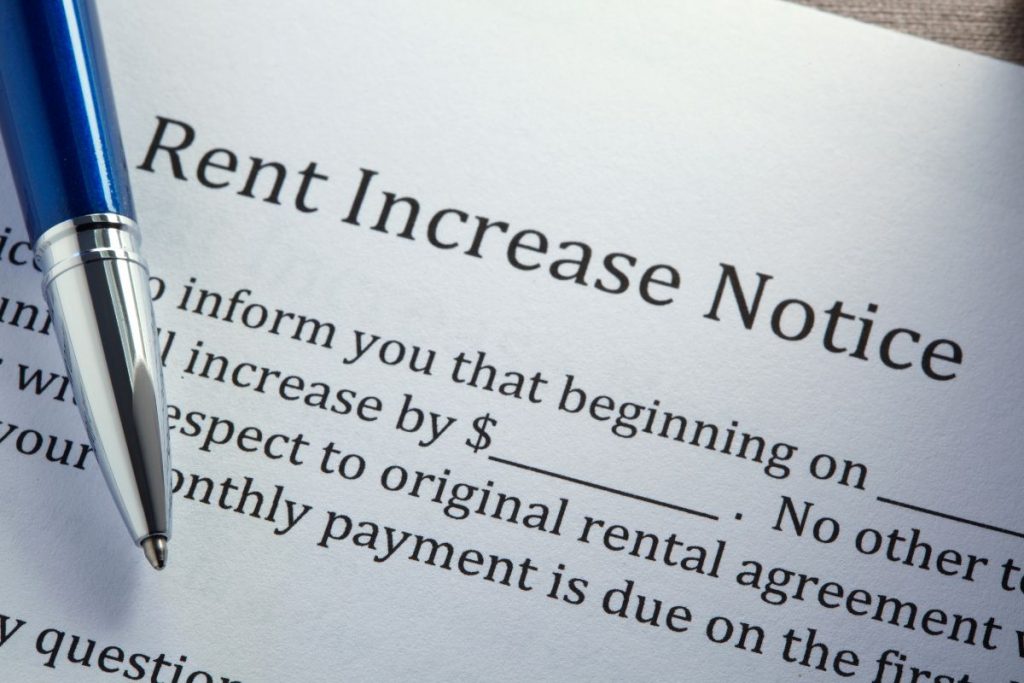In Dubai, MMP saw a 36% increase in rental costs in 2022, with a considerable increase in the number of tenants preferring to extend their leases. Strong market conditions have resulted to landlords raising rents more often, which is terrible news for all tenants. But what is the most rent rise a landlord may request in 2023? Can they do it when? What options do you have to negotiate or reject a planned rent increase if you don’t like them?
These concerns are important since it pays to be aware of your landlord’s rights and rules. Here’s everything you need to know whether you just got a notification of a rent increase or are expecting one shortly.
Can my landlord raise my rent?
The quick answer is yes. However, this increase cannot occur during the term of your lease; it may only occur at the time of renewal.
If landlords want to raise the rent, they must provide tenants at least 90 days’ notice, according to the Dubai Land Department (DLD). This means they must tell you at least 90 days before the end of your lease term, with the rent increase taking effect at the time of renewal.
What if my landlord does not follow through on the 90-day notice?

You have the legal right to refuse to accept the rent increase if the landlord fails to provide you 90 days’ notice. Simply put, a landlord cannot raise your rent if you were not notified in writing or electronically. If your landlord fails to comply with the 90-day notice, your lease will automatically renew at the same rental rate.
If your landlord refuses to let you go, you can file a complaint with the Rent Disputes Settlement Centre. This will cost you 3.5% of your annual rent. However, the court will almost always award expenses to a successful application.
Is there a limit on how much the rent may be raised?
Decree 43 specifies how much a landlord can increase the rent in Dubai in 2023. If the current rent is:
- No rent increases are acceptable if the rent is less than 10% of the average market rental rate.
- A maximum increase of 5% is acceptable if the rental rate is between 11% and 20% below the average market rental rate.
- A maximum increase of 10% is allowed between 21% and 30% below the average market rental rate.
- A maximum increase of 15% is acceptable if the rental rate is between 31% and 40% below the average market rental rate.
- A maximum increase of 20% is acceptable if the rental rate is more than 40% lower than the average market rental rate.
How can I find out what the typical market rental rate is?
The DLD Rental Index assists tenants and landlords equally in determining the average market rental rate. Simply go to the rental index calculator online. Simply fill in the appropriate parameters, such as property type, area, and bedrooms, and the tool will compute the average rent.
The Rental Index is a handy rental value reference for both tenants and landlords. This tool may be used to determine the average market rent as well as to forecast maximum rent increases.
What can I do if my rent increase is unreasonable?
Nobody likes to pay more rent than necessary. If you believe your landlord is attempting to increase the rent by more than the Rent Index allows, speak with your landlord about it and indicate how much they are allowed to increase the rent. If you are unable to resist and believe you are in the right, you can submit a complaint with the Rent Disputes Settlement Centre.
Whether you are renting for the first time or have been doing so for some time, it may be quite shocking to get a letter from your landlord saying that your rent will be increased.
So, if this occurs to you, we hope this article will assist you in understanding when and how your landlord might increase your rent.
Do you have any more questions?
Our helpful, knowledgeable staff is only a phone call or email away!




